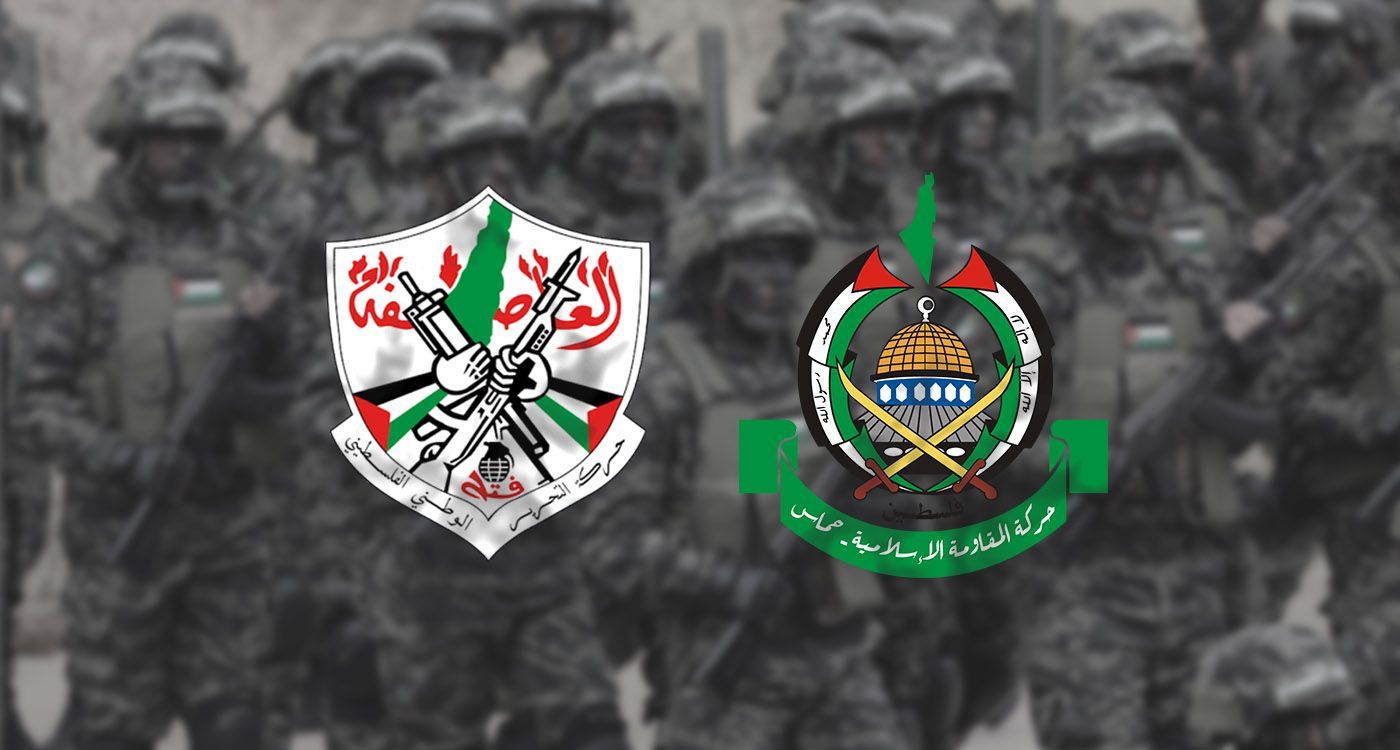- Home
- Middle East
- Hamas, Fatah Agree on Joint Committee to Run Post-War Gaza

This picture contains Hamas and Fatah's official emblems. ©This is Beirut
Palestinian Islamist movement Hamas and Palestinian president Mahmoud Abbas's Fatah party have agreed to create a committee to jointly administer post-war Gaza, negotiators from both sides said Tuesday.
Under the plan, which needs Abbas's approval, the committee would be composed of 10 to 15 non-partisan figures with authority on matters related to the economy, education, health, humanitarian aid and reconstruction, according to a draft of the proposal seen by AFP.
Following talks in Cairo brokered by Egypt, the two rival Palestinian movements agreed the committee would administer the Palestinian side of the Rafah crossing with Egypt, the territory's only one not shared with Israel.
Fatah's delegation, led by central party committee member Azzam al-Ahmad, will return to Ramallah Tuesday to seek Abbas's final approval, the negotiators told AFP on condition of anonymity.
Wassil Abu Yussef, member of the executive committee of the Palestine Liberation Organisation which includes Fatah, said the committee will convene later Tuesday to decide whether to approve the arrangement or not.
Hamas's delegation was led by politburo member Khalil al-Hayya.
However, Jibril Rajoub, Fatah's number three and secretary-general of its central committee, expressed doubts the deal would ever get over the line.
"What committee is this? It is wrong to even discuss this issue," Rajoub told reporters in the West Bank city of Ramallah Tuesday, adding it would bring "division".
Rajoub said that he did not favour any deal that would lead to separate political systems in Gaza and in the occupied West Bank, which Fatah rules under the internationally recognised Palestinian Authority.
"We want one government, one security apparatus, and one unified policy. Any discussion or effort outside of this framework is a mistake," he said.
"We will not be part of any step that entrenches division or aligns with the path Netanyahu desires," he added.
Ghassan Khatib, a Palestinian political analyst and former minister and diplomat, also expressed doubts.
"Gaza is now under complete Israeli control, and there is little significance for any arrangement that does not take into consideration the Israeli presence there," he told AFP.
Should the agreement actually be implemented, he said its value would depend on whether Israel maintains a military presence in the Gaza Strip.
'Apocalyptic'
If the deal is applied while Israel retains control of Gaza, Khatib said, "then I don't think this agreement is good, because this will release Israel from its duties as an occupier."
The agreement's announcement comes at a time of renewed diplomatic efforts to end the war between Hamas and Israel, which has devastated the Gaza Strip.
According to UN Secretary-General Antonio Guterres, the situation in the territory is "horrific and apocalyptic".
The truce efforts, led by the United States in coordination with Qatar, Egypt and Turkey, come in the wake of a fragile ceasefire between Israel and Hezbollah in Lebanon.
As the administration of US President Joe Biden prepares to hand over power in January to President-elect Donald Trump, Palestinians face intense US pressure to ensure that Hamas will have no role in Gaza once the war ends.
Israeli Prime Minister Benjamin Netanyahu's government, one of the most right-wing in Israel's history, made Hamas's destruction in Gaza one of its main war objectives.
It has repeatedly expressed strong opposition to the Palestinian Authority playing a major role in the Gaza Strip after the war.
It has also categorically refused any semblance of a return to the status quo ante, where Hamas ruled Gaza.
With AFP
Read more



Comments